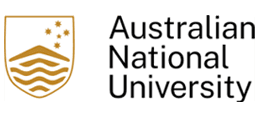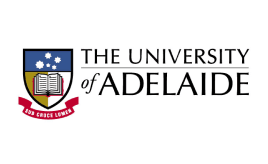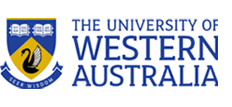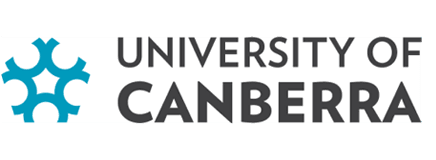Experts urge PM to establish robust EPA and EIA

Media Release
18 September 2024
Leading Australian scientists and First Nations experts are calling on Prime Minister Anthony Albanese to work with the senate crossbench to deliver on Labor’s election commitments to establish an effective national environmental protection agency and a national environmental data agency.
The Biodiversity Council says that passing a strengthened version of the nature-positive bills would deliver a lasting legacy all Australians will benefit from by improving the sustainability of future developments.
Biodiversity Council experts are adding their voices to the chorus urging Prime Minister Anthony Albanese to work with crossbench Senators to strengthen and pass these essential reforms for Australia.

“Future generations will judge all of us on our inability to protect the natural world. Conserving nature is a national policy that must have bipartisan support; our food security, health and emotional wellbeing is dependent on its success." - Professor Carolyn Hogg, Deputy Director, Sydney Environment Institute, The University of Sydney and Biodiversity Councillor.
“Species are disappearing rapidly across Australia, as we can see from the Threatened Species Index. Strong Nature laws enforced by a powerful and independent EPA are the first step in making our nature laws work. The EPA will be an important voice for speaking truth to power regarding Australia’s flagging biodiversity." - Professor Hugh Possingham, Centre for Biodiversity and Conservation Science, The University of Queensland, Biodiversity Co-Chief Councillor and former Queensland Chief Scientist

“My work in cities shows how grossly inadequate current laws are to protect the precious plants and animals we all care for in the places we live, work and play. We are continuing to lose habitat for extraordinary threatened species like koalas, black cockatoos and grassland earless dragons at an alarming rate. Stronger laws to protect nature in cities are needed now.” - Professor Sarah Bekessy, School of Global, Urban and Social Studies, RMIT University and Lead Biodiversity Councillor.
“Getting the detail of the EPA right is important for it to be able to deliver improvements in the management of Australia’s environment. The Biodiversity Council made a series of recommendations on these Bills that would make them an important first step toward nature positive, but passing weak reforms will mean the declines will simply continue .” - Professor of Environmental Management Martine Maron, The University of Queensland and Biodiversity Councillor.
“If the EPA is not independent it will be compromised by political processes which will undermine the authority’s ability to protect nature.” - Yuin man Dr Jack Pascoe, Senior Research Fellow, University of Melbourne in the School of Ecosystem and Forest Sciences and Biodiversity Council Co-Chief Councillor.
“A well-resourced national-level EPA is a feature of developed countries around the world, including the USA and China. Challenges in the implementation of the Murray Darling Basin plan clearly illustrate the need for centralised oversight of major environmental and natural resource programs.” - Professor Ross Thompson, Centre for Applied Water Science, University of Canberra and Biodiversity Councillor.
“Our community surveys have found that 97% of Australians want more action to protect nature. Stronger environmental laws to protect nature and the establishment of an independent EPA are things that the majority of the Australian community support.” - Professor Liam Smith, Director of BehaviourWorks Australia, Monash University and Lead Biodiversity Councillor.

“Australia’s biodiversity deserves a tough cop on the beat. An independent EPA will ensure that decisions affecting Australia’s biodiversity are based on objective environmental standards not political discretion. Strong independent decision-making also needs consistent, robust science. Environment Information Australia will play a critical role in providing that information base and is a key part of a nature-positive future.” - Professor Jan McDonald, Faculty of Law, University of Tasmania and Biodiversity Councillor.
“With ecosystems collapsing and the list of threatened species ballooning, the federal government must, urgenly honour their promise to put in place and enforce much stronger and far more effective environmental legislation. A well-resourced and independent EPA and EIA are absolutely essential. Australia’s biodiversity simply cannot afford further delays.' - Professor of Wildlife Conservation Euan Ritchie, Deakin University and Biodiversity Councillor.
“The Australian Government has committed to preventing future extinctions - which is an important commitment given that Australia leads the world in mammal extinctions. Ensuring an EPA and EIA are established will be critical to ensuring that yet further extinctions are prevented.” - Professor David Lindenmayer, Fenner School of Environment and Society, The Australian National University and Biodiversity Councillor.
“Western Australia led the nation in developing an environmental data platform to make better informed decisions for biodiversity and business alike. National coordination of environmental data via a well-resourced EIA will be a game changer for so many sectors, and for tracking national progress in arresting the loss of our natural heritage.” - Associate Professor Nicki Mitchell, Deputy Director, Oceans Institute, The University of Western Australia and Lead Biodiversity Councillor.
“Establishing an independent EPA along with robust, credible and balanced national environmental standards are key elements that are needed to restore trust and certainty to environmental decision making. These measures will have the capacity to deliver improved environmental decision making and business and investor certainty.” - Biodiversity Council Director, James Trezise.
The Biodiversity Council is an independent group founded by 11 Australian universities and draws together experts from environmental science, Indigenous knowledge, economics, law, and social science to promote evidence-based solutions to Australia’s nature loss crisis.














